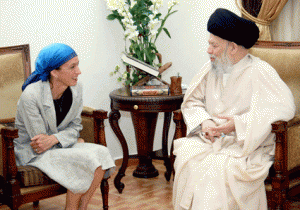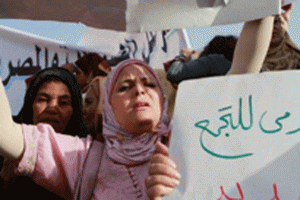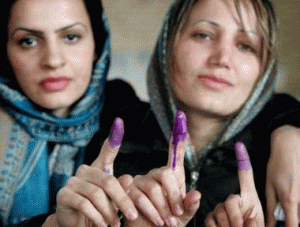13 Feb 2019 | Campaigns -- Featured, Statements
[vc_row][vc_column][vc_column_text]

Maria Ressa is CEO and Executive Editor of Rappler.com
Index on Censorship condemns the arrest of journalist and Rappler chief executive Maria Ressa by Philippines authorities and calls on the UK to make good on its promises to defend media freedom globally by calling for her release.
“The UK Foreign Office has made media freedom its flagship campaign for 2019. Jeremy Hunt must make good on his promises to champion media freedom worldwide by showing that the actions of the Philippines authorities are unacceptable,” said Jodie Ginsberg, chief executive of Index on Censorship, a freedom of expression campaign group.
Ressa was arrested in connection with a story published by her news outlet in May 2012. Officers from the National Bureau of Investigation arrested Rappler CEO and executive editor Maria Ressa early Wednesday evening, February 13, in connection with a cyber libel case filed by the Philippines justice department, according to Rappler.
Maria Ressa is one of the judges for this year’s Index on Censorship’s Freedom of Expression Awards and featured in the 2018 autumn edition of Index on Censorship magazine.[/vc_column_text][vc_basic_grid post_type=”post” max_items=”4″ element_width=”6″ grid_id=”vc_gid:1550060728999-3fa7b40d-3dd0-2″ taxonomies=”6534″][/vc_column][/vc_row]
3 Dec 2012 | Middle East and North Africa, News and features
Annette Fisher interviews FRANCES GUY, Senior Adviser on the Middle East at the Foreign and Commonwealth Office and former British Ambassador to Lebanon and Yemen.

Francis Guy meets with Mohammed Hussein Fadlallah
LONDON (INDEX). — Outspoken and sometimes controversial, Frances Guy public profile rose when she was forced to apologise for lauding Lebanon’s Grand Ayatollah Mohammed Hussein Fadlallah after his death in 2010. The White House had branded the Shia cleric “a terrorist” and the Foreign Office said that Guy’s internet posting praising Fadlallah as a “true man of religion” had been removed “after mature consideration”.
Index on Censorship sat with her to discuss the dilemmas of public service and free speech, as well as her vast experience in the Middle East and the challenges women face in that region.
INDEX: You have spoken about the importance of a free press and have actively supported journalists who have been threatened or imprisoned by their governments. How do you see the state of the free press in the Middle East in 2012?
FRANCES GUY: I cannot speak for all of the region but generally this is a good moment for press freedom in the Middle East. In fact, the advent of satellite television had already made it hard for dictatorial regimes to suppress all alternative sources of information. Al Jazeera was a breath of fresh air, not only to those limited by CNN’s version of world news, but also to all those whose only news came from state controlled television, radio and newspapers. I understand the press in Tunisia is effervescent in its reaction to so many years of uniformity and I know that every night in Baghdad I have a choice of more than 20 Iraqi TV stations to choose from.
All is not perfect of course and the counter-balance to releasing the lid on heavily censored press is to ensure responsible reporting. In Lebanon reporting was not always reliable, so while the press is relatively free there is scope for improving the quality of reporting.
The crisis in Syria has thrown open a new debate on what is information and how you can guarantee its’ authenticity. When access to outside journalists is so severely limited, unbiased reporting is almost impossible. One side’s truth becomes the other side’s lies. Access to the internet makes everyone a potential reporter but verification becomes ever more important.
INDEX: During your postings as Her Majesty’s representative in Yemen and Lebanon, you spoke passionately on greater freedoms for women and lesbian, gay, bisexual, and transgender (LGBT) citizens in those countries and the region. What do you think governments in these countries could realistically do to increase freedoms for these groups?
FG: One of the issues that shapes public perception is image. There is a debate going on in Iraq at the moment instigated by the women’s journalists association about the image of women in the press; whether it is in Egyptian or Turkish soap operas, where the women are often second class citizens, the brunt of jokes, or reduced to playing supporting roles or whether it is about air time given to women politicians. If governments wanted to improve the status of marginalised groups in society they can ensure that their own spokespeople are from these marginalised groups. Governments can lead by example by nominating women to office where they will have constant media exposure.

A protest for International Women’s Day in Egypt
Ending discriminatory laws would also help. Relatively simple acts like ensuring gender neutral language in the constitution can play a very important role. In Arabic nouns can be male or female. Some (men) argue that because common practice is that the plural male form in Arabic of e.g. the word citizens is assumed to include men and women then it is acceptable to have only the male form referred to in a constitution. But this leaves a legal ambiguity which can be exploited. It would be so easy to simply include the male and female forms in such texts or to make an explanatory note in every law explaining that the use of the masculine form is used in the sense of men and women on an equal basis without prejudice. I am not sure that any Arab state has done this.
Freedom of expression for LGBT citizens is regrettably even more problematic, but if governments could be persuaded to uphold the neutrality of rights enshrined in constitutions that would go a long way to ensuring those rights are truly applied to all.
INDEX: While you represented the British government, you blogged about matters of interest to you and to the British government. Over the past year, the media has questioned appropriateness of British foreign office representatives using social media as a tool of diplomacy. What are your thoughts?
FG: I think it might have been William Hague who said that there is an inherent contradiction between writing a readable/interesting blog and being a mouthpiece for government. I found it difficult to find something worth writing that did not betray confidences or risked upsetting someone. I therefore often wrote about subjects other than politics; the life cycle of the cedar tree, for example. But that is difficult to sustain.
I enjoyed blogging, and the experiment brought me into contact with groups I would never have met otherwise; bloggers in Lebanon who had been imprisoned for their views, for example. Who talks about them? And the LGBT community, similarly sidelined and oppressed. I think the bigger question is about transparency in government. If you believe that better government is open and transparent government then diplomats should be blogging.
INDEX: What limits on the freedom to express yourself did you encounter while you were an Ambassador?
PG: An Ambassador is always an ambassador 24 hours a day. You are judged as being Her Majesty’s Representative, not as an individual. Inevitably, there can be a tension between what you believe as an individual and what you are asked to say on behalf of your government. Even off the record you are an official representative. But that is part of the job and understood as such. If anything, the UN is often even more cautious, because it is formed of member states, i.e. governments so it is wary of criticising openly its members.
INDEX: You have spoken in the past about “freedom with responsibility”, could you elaborate?
PG: I am not sure of the context of the quote, but I am fairly sure that my intention would have been aimed at some irresponsible sections of the media, who do not verify information and who can (perhaps sometimes deliberately) put people’s lives in danger by stating unproven accusations as fact. Some Lebanese journalists are guilty of this, as indeed were many Ethiopians when I served there. The responsibility is to the truth but also to being conscious of the implications of printing/publicising some facts and not others. The British press is clearly not immune to a similar discussion — just because you can do something in the name of freedom of expression does not mean that you have to do it.
INDEX: Having served on the British government, you will be aware of accusations of hypocrisy when countries like the UK lecture other governments about their human rights records when the UK hasn’t “sorted out its own backyard”. What has been your reaction to these accusations?
FG: “Our own backyard” was less of a problem than our failure (as my interlocutors would see it) to deal with crimes that our politicians and armies had committed overseas. There were awkward moments though, when e.g. you are supporting quotas for women as a way to make progress in women’s representation in Parliament, when your own country under successive governments has not introduced quotas and has generally been wary of any kind of positive discrimination. My reaction though was always that freedom of expression, including in the ability to vote out your government if you disagree with it, guarantees a sound level of public debate about all issues.

Women having voted in Iraq
INDEX: You have recently taken up your post with UN Women in Iraq. What freedom of expression issues have you encountered since you arrived?
FG: I have attended was about the image of women in the media and how that can cement social perceptions. The challenge is to get Iraqi TV to show different kinds of women, playing different roles on screen. I am impressed with some of the phone-in programmes on radio which allow citizens to voice their frustrations with the failure of the state to deliver public services. In itself they will not change very much but it does mean that no politician can pretend that they don’t know what the issues are. For a state that was famous for its tyranny of expression, it is refreshing to find people so willing to express their views publicly.
INDEX: What do you see as the key battle grounds for free expression in the next five years?
FG: Five years is a long time in today’s fast moving media scene. For the next months, I think the issue of so-called citizen’s journalists, and immediate access to YouTube etc, will continue to be paramount. What moral limits are there on what should be accessible? Who decides? Can governments’ prevent documents being uploaded on YouTube? Do YouTube, Google etc have some moral parameters – should executions be so readily accessible? And for women, the debate on images of women, including the increasing accessibility of pornographic images will also continue. I think I will put on my wall the pictures of women weight lifters at the Olympic Games… what power and majesty (and defiance).
Annette Fisher is an international development professional based in London
5 Jan 2012 | United Kingdom
In response to an open letter from Index and a number of media freedom groups, Foreign Secretary William Hague outlines the Coalition Government’s policy on freedom of expression and the internet.
Thank you for your letter of 1 November about the Coalition Government’s policy on freedom of expression.
This Government rejects censorship and surveillance that undermines people’s rights to express themselves, organise or communicate freely. We are proud to stand up for freedom of expression and privacy. Britain will always be on the side of those aspiring to greater political and economic freedom anywhere in the world, whether this is on or off the internet.
In the UK, we are striving for a model for internet governance where governments, industry and users of the Internet work together. Our obligations under the Human Rights Act, underpinned by our international treaty obligations, are central. As you know, these protect freedom of expression, association and assembly from undue interference from the government or other public bodies. International human rights conventions rightly set very high thresholds for any action by the state to suppress or control the free flow of information. Any action we take will be in accordance with these obligations.
I would like to address some specific issues you raise.
We believe that parents should be provided with wide tools to enable them to voluntarily block harmful and inappropriate content. Active choice is the preferred approach, with parents given a choice as to whether or not to activate parental controls when switching on a new internet enabled device or connecting to a new internet connection for the first time. It is important to distinguish between government encouraging people to make more use of existing protections as a matter of choice, and the government deciding what people can and cannot do online. Our plans do not prevent access to legal material, but seek to make it much clearer that protections exist, and to encourage their use. The position of Claire Perry regarding the default filtering of adult content is not the position of this government.
You referred to the Prime Minister’s statement to Parliament earlier this year in the wake of recent disturbances in the UK. Let me be clear. The Prime Minister did not suggest that social networks should be closed down. The government has not and is not seeking any new powers in this area. We recognise the enormous benefits that social networking brings, not least in the valuable part it played in helping citizens avoid trouble spots and in galvanizing community clean up efforts. Social networking itself was not the root cause of the disturbances, but, as our courts have recognised, did offer an enhanced means of communication to some individuals’ intent on inciting or facilitating widespread criminal behaviour. In light of this our law enforcement agencies, the network providers and social media organisations are looking at ways they can enhance co-operation to prevent the networks being used for criminal behaviour, in accordance with, and in order to uphold UK law.
Finally you raised concerns about powers of surveillance and access to personal information online. It is of course the responsibility of government to maintain capabilities to investigate crimes and to protect individuals where they are threatened by criminals, terrorism or foreign powers. The use of covert surveillance by the authorised government agencies, for example the acquisition of communications data and the interception of communications, is regulated by the Regulation of Investigatory Powers Act 2000 (RIPA). RIPA’s strict safeguards, including independent oversight, ensure that such surveillance is, and will continue to be, fully consistent with our obligations under the European Convention on Human Rights.
As I outlined at the London Conference on Cyberspace (LCC), the UK’s approach to the future of cyberspace has at its heart a simple proposition: behaviour that is unacceptable in the offline world is also unacceptable online. This emphatically includes the curtailing of human rights. Human rights are universal, and apply with equal force online as they do offline. The UK will continue to take a lead role in ensuing these principles are upheld.
15 Sep 2010 | News and features
The Foreign Secretary announced this morning the launch of a new independent advisory group on human rights. Promising to turn rhetoric into “accountability and lasting change”, Hague said he will convene regular meetings with NGOs and independent experts to ensure the Foreign Office has the “best possible information” on human rights abuses across the world.
In line with this the FCO will re-issue, and publish, its guidance to staff on the need to report any alleged violations of human rights that they encounter. In addition, the Foreign Secretary will now report annually to Parliament on these issues.
Hague emphasized that the coalition will move away from the previous government’s “idealism” to a more “practical and principled approach”, arguing that change cannot be imposed on other countries, however desirable that change. In what some may see as a step back from responsibility, Hague said with regard to Iraq and Afghanistan that the foundations of democracy have to be “built over time”. He stressed that the government is not resigned to a lack of change, but that it intends to work “with the grain” of individual countries. When asked whether the FCO had to pull its punches with China because of its economic power, however, Hague insisted there was “no need to water down” criticisms about human rights violations.
The Foreign Secretary went on to describe BBC World Service as “invaluable” in promoting the UK’s reputation for openness and liberty, and said that he did not support the closure of the World Service’s broadcast in Burma. In response to questions about funding for Human Rights NGOs, Hague said that he had reluctantly agreed to cuts at the Westminister Foundation for Democracy, and argued that the entire Foreign Office budget contributes to working on such issues.




